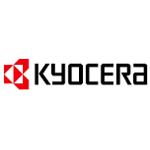Accounting ERP system
The implementation of an ERP system for accounting enables the automation and standardization of financial and bookkeeping processes. This reduces the risk of errors and increases the efficiency of data processing.
Modular accounting ERP for companies of any size and industry
Flexible solutions tailored to meet specific needs of your business
The system is easily scalable, ensuring efficient management of finances and business processes. Key modules significantly simplify accounting, increase transparency and improve control over financial processes.
General Ledger
Provides complete management of financial operations, analytical and synthetic accounting, and automatic report generation. Helps to reduce the probability of errors and speed up the closing of accounting periods.
Payables and receivables management
Allows you to control the company's cash flow, track invoice payments in a timely manner and optimize working capital management. Particularly important for organizations with a large number of customers and suppliers.
Budgeting and Planning
Provides the ability to forecast and plan based on actual data, enabling companies to make best choices and manage resources effectively. Important for manufacturing and wholesale industries, where budgeting is crucial for success.
Payroll and HR
Automates the calculation of salaries, taxes and other deductions, making it easier to comply with regulations and interact with staff. Designed for businesses with large numbers of employees.
Purchasing and Inventory
Streamline warehousing processes and reduce storage costs. Particularly useful for manufacturing and distribution companies where accurate stock planning is required.
Reporting and Analysis
Automates financial reporting and provides in-depth analysis, allowing real-time analysis of key business performance indicators. This enables executives to react quickly to business changes and adapt strategies.
One ERP completed projects
Learn how international 1C ERP platform reflected our clients business
No Posts Found!
Why Choose ERP Platform Development from First.Bit






- First Bit is an international IT company with 27 years of relevant experience.
- We have offices in 10 countries, including Russia, Kazakhstan, Uzbekistan, Belarus, UAE, Spain, Canada, Colombia and Brazil.
- Our management system is certified in accordance with the international standard ISO 9001:2000.
- We specialize in turnkey automation and digitalisation and have the capability to undertake projects of any size.
- Our solutions ensure the sustainable development of our customers’ businesses and make them stronger.
- Our team includes more than 8,000 employees with a wide range of skills in process automation, BI and CRM system implementation, data collection and visualization, and simulation modeling.
Our customer’s feedback



7 steps to introducing an accounting ERP
1. Assessment: Determining platform requirements based on user needs.
2. Selecting the System: Evaluate and select a suitable ERP configuration based on functionality and cost.
3. Implementation planning: Developing a deployment plan with timeline and budget.
4. Customisation: Configuring the ERP system to meet the specific needs of the business.
5. User training: Providing manuals and training on the system to employees.
6. Testing and launching: Verification of the performance of the system and its start-up.
7. Support and optimisation: Providing regular support and improvements to the system.
Advantages of partnering with First.Bit
Tailored ERP systems with built-in BI
Bespoke solutions designed to meet your specific business needs. Embedded BI tools enable in-depth financial analysis and rapid decision-making, improving visibility and control of business processes.
FTA Accredited Software
Our software ensures compliance with state regulatory requirements and accounting standards. Ensures reliability, accuracy and ease of compliance with tax and regulatory requirements.
Best practices and world-class experts
Professionals with international experience develop software based on best practices. This reduces risk, speeds up the implementation process and enables more efficient use of the platform.
Average time and cost of ERP system implementation
Implementing an ERP system is a complex process with many factors affecting the timeline and cost.
What affects the final cost and implementation time:
- Complexity and the size of the project. The number of users, functional modules and processes, volume of data to be migrated, the number of branches and departments in the company.
- Customisation. Adaptation of interfaces and integration with other software and external systems.
- Infrastructure requirements. The need to build new servers, networks and other technical components.
Our specialists can advise you on the best package solution for your business or do a bespoke project costing. We can help you find the most effective software to meet your goals and budget.
Get an individual ERP system cost calculation
Why choose ERP over accounting software
Take your business to the next level with our custom ERP solution
Process integration
ERP integrates all business functions into a single system, allowing accounting to synchronize with sales, purchasing and HR departments, providing more accurate and up-to-date data.
Financial benefits
Helps optimize costs by improving cash flow management, reducing the cost of manual processes and minimizing errors that can lead to fines or financial loss.
Scalability
Enables new modules to be added as business needs increase. For example, production and warehouse accounting. Provides flexibility to develop and support all key processes at every stage of growth.
Get free expert consultation
Fill in the form to contact us. Our team will be in touch with you as soon as possible with answers to all your questions.
Zeytinlik Mah. Halkçı Sk. İren Han Gür Çarşı Blok No: 28 İç Kapı No: 58 Bakırköy / İstanbul
Phone: +905010069565
